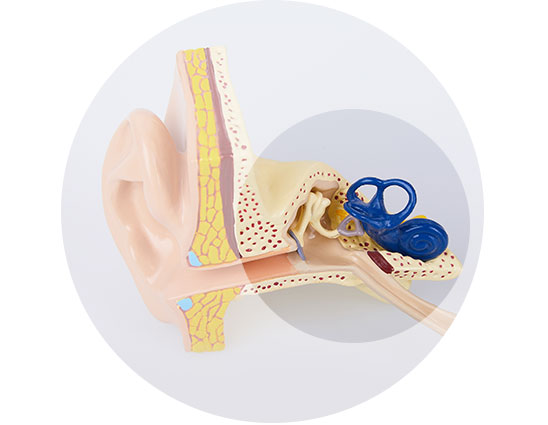High-frequency hearing loss

What is high-frequency hearing loss?
People who suffer from high-frequency hearing loss have difficulty hearing high-pitched sounds. The result of this is that consonants can become difficult to hear, meaning that other people may sound like they're mumbling.
High-frequency hearing loss is often caused by age-related hearing loss and noise-induced hearing loss.


Book a free test for high-frequency hearing loss
What causes high-frequency hearing loss?
High-frequency hearing loss can be caused by a wide range of health and lifestyle factors. It can be caused by:
- Ageing
- Genetics
- Exposure to certain drugs
- Medical conditions
- Noise exposure
Preventing high-frequency hearing loss
There are many health and lifestyle factors that can contribute to your risk for developing high-frequency hearing loss. But there are steps that you can take to prevent it.
Using ear plugs (or other hearing protection) in excessively loud environments is a great way to protect your ears from potentially damaging sound levels.
Untreated hearing loss
Signs and symptoms of high-frequency hearing loss
Struggling to follow conversations and understand what others say are two common signs of high-frequency hearing loss. The main signs include:

Treatment for high-frequency hearing loss
Our hearing care experts often recommend hearing aids as an effective treatment method for high-frequency hearing loss. More specifically, the hearing aids can be programmed to focus on amplifying higher-frequency sounds, so the hearing aid user can hear these sounds again.
Our hearing care experts will be able to advise you on which type of hearing aid is best for your individual needs.












